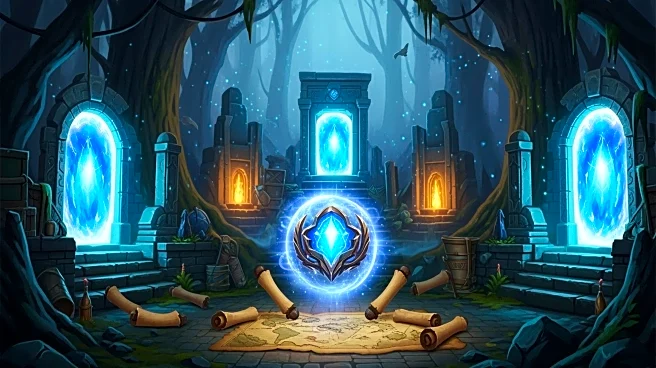What's Happening?
A group of indie developers, formerly from AAA studios, have released a new co-op RPG called Fellowship, which focuses on MMO-style dungeons without the traditional grind. The game allows players to form parties
of four, consisting of a tank, healer, and two damage-dealers, to clear enemy packs and bosses for loot. Unlike typical MMOs, Fellowship does not require players to level up characters or complete numerous quests. Instead, players select MOBA-like heroes and engage in dungeon runs. The game was developed by Chief Rebel, an independent studio, which allowed the developers to focus on their vision without the constraints of broader appeal required by larger studios. Fellowship has undergone improvements following a successful open beta, including streamlined dungeon experiences and a new ranking system.
Why It's Important?
The release of Fellowship represents a shift in the gaming industry, where indie developers are increasingly able to create niche games that cater to specific player interests without the pressure of mass-market appeal. This development could influence the future of game design, encouraging more studios to explore unique concepts and gameplay experiences. For players, Fellowship offers an alternative to traditional MMOs, focusing on cooperative gameplay and dungeon exploration. The game's success could lead to more innovation in the RPG genre, potentially impacting how games are developed and marketed.
What's Next?
Chief Rebel plans to continue developing Fellowship by introducing new heroes, skins, cosmetics, enemy difficulty modifiers, and dungeons. The studio is actively engaging with the community to test and refine the game during its early access period. Feedback from players will be carefully considered to ensure balanced gameplay and enjoyable experiences. As the game evolves, it may attract a broader audience and inspire other developers to pursue similar projects.
Beyond the Headlines
Fellowship's development highlights the growing trend of indie studios challenging traditional gaming norms. By focusing on specific gameplay elements, indie developers can create experiences that resonate deeply with dedicated player communities. This approach may lead to a more diverse gaming landscape, where players have access to a wider range of game styles and mechanics.








